“You bee a sort of knaves”, sayd Skelton
What is your theory? That Oxford was born in 1548, the son of Joan Jockey? What difference would that make to the creation of the Shakespeare canon?
Many thanks to the reader (identified below) who sent me this and a few other sharp questions about my re-examination of the documents relevant to Oxford’s birth. Since any theory about Oxford’s true parentage would require DNA analysis to prove or conclusively refute, I’d better call this my hunch rather than theory. In the spirit of possibility, I suggest these hypothetical and (to my mind) sensible reasons for the seemingly irrational or irresponsible marriages of John de Vere:
1. John de Vere made a bigamous marriage with “Joan Jockey ” because she was pregnant. Otherwise, he would have just “kept her”, in the same manner that the witnesses of 1585 say he kept Anne of Tilbury Hall.
2. Earl John’s brothers-in-law Darcy and Sheffield disapproved of this alliance because Joan was a nobody, a mere village wench, and they wanted him to marry a somebody, preferably one of their kin.
3. Knowing that Lady Dorothy was dying, Darcy and Sheffield arranged for Enowes and Smith to “rid [Joan and Anne of Tilbury Hall] away from the …earl” because they wished him to marry one of their kin. In Joan’s case, this “ridding away” required an act of horrific violence because John de Vere was very attached to his expectant second wife. The men resorted to raping Joan and cutting her nose because they wished to destroy her as an honorable or attractive woman, and/or because their “spoiling” would cast permanent doubt on the paternity of Joan’s child, (if she was in the early stages of pregnancy), and/or because they wanted to leave the earl with zero temptation to make his marriage to Joan legal after the countess died.
4. John de Vere needed a wife in the spring of 1548 because Joan had given birth to a boy, and he wanted very much to raise the boy as his son and heir. John became emotionally attached to this firstborn son from the woman he had married in White Colne Church because of the trauma she had suffered at the hands of his kin, and/or because his ancestors, the 13th and 14th earls of Oxford, had died without leaving a male heir, and/or because after ten years of marriage, his first wife Dorothy had only produced two daughters, with one dying “in swaddling clothes”.
I’ll be the first to admit that even if we find all of the above to be within the realm of possible, this very “possible” son may not have been Edward de Vere, and may not even have survived. Nevertheless, I often imagine that Edward was Joan’s son. For me, this narrative offers a more compassionate reading of John de Vere’s actions. And the stain of bastardy – in particular, the thought of such base blood possibly running in his noble veins – adds tremendous psychological depth to Edward Oxenford’s biography and to the works of his greatest biographer, William Shakespeare.
But that’s a topic for another day. For now, I’d like to follow up the theme of John de Vere’s passion for his firstborn son (as I imagine), with another question from the same reader: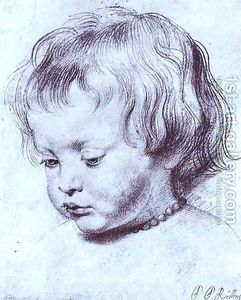
Once the Nevil heiress left [Earl John], [Darcy and Sheffield’s] need as representatives of the ruling party in their county, was to have the earl produce a male heir, as soon as possible, legally, by an appropriate member of the Essex upper classes, not someone like Joan Jockey. Had Joan had a child, what need would there be to go through the elaborate process of getting him taken on as a foundling by another mother, one that was perfectly capable of producing children, as she did with Mary Vere.
On the first point, I’m not sure that Earl John’s in-laws needed him to produce a male heir, a.s.a.p. What they didn’t need or want was an heir by commoners such as Joan, or Anne, or Dorothy Fosser. Margery Golding’s family had the right connections – maybe not as good as the Wentworth match that Seymour and Darcy had hoped for, but she was a choice they could live with.
If Joan had given birth to the earl’s son, it would have been natural and humane for him to want to raise his own flesh and blood as his legal heir, rather than abandon him. I imagine the price he might have demanded in return for lifting Margery Golding into the nobility was that she accept and raise this boy as her own. It all comes down to a matter of the heart. I believe John de Vere had a good one, and that his son remembered him with bemused respect and great melancholy.
Whatever the truth may be, as biographers seeking an empathetic understanding of our subject, how might we imagine Edward responding to the gossip he was bound to hear about Joan Jockey from his earliest years? In 1566, three years after his sister Katherine challenged his “legitimacy of the blood”, someone put together a jest book deceptively entitled Merry Tales of Skelton. Much to my surprise, in the Seventh Tale, I found an uncanny mirror of just how I’d imagined John de Vere’s love for his boy: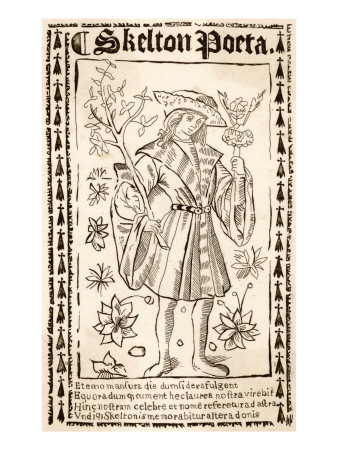
Skelton, the next Sunday after, went into the pulpit to preach, and said: Vos estis, vos estis, that is to say, You be, you be. and what be you? said Skelton. I say, that you be a sort of knaves, yea, and a man might say worse then knaves; and why, I shall show you. You have complained of me to the bishop that I do keep a fair wench in my house: I do tell you, if you had any fair wives, it were some what to help me at need; I am a man as you be: you have foul wives, and I have a fair wench, of the which I have begotten a fair boy, as I do think, and as you all shall see.
Thou wife, said Skelton, that hast my child, be not afraid; bring me hither my child to me; the which was done. And he, showing his child naked to all the parish, said, how say you, neighbors all; is not this child as fair as is the best of all yours? It hath nose, eyes, hands, and feet, as well as any of your: it is not like a pig, nor a calf, nor like no foul nor no monstrous beast. If I had, said Skelton, brought forth this child without arms or legs, or that it were deformed, being a monstrous thing, I would never have blamed you to have complained to the bishop of me; but to complain without a cause, I say, as I said before in my antethem, vos estis, you be, and have be, & will and shall be, knaves, to complain of me without a cause reasonable.
Does anyone else hear Shakespearean echoes in this?
Hamlet, as he contemplates suicide and the hereafter: “To be, or not to be.”
Shylock, the despised, claiming his common humanity: “Hath not a Jew eyes; hath not a Jew hands?”
In Much Ado about Nothing, the 2nd watchman’s hilarious bumbling: “Bring Deformed forth”.
And Aaron the Moor, exulting in the birth of his bastard son:
‘Zounds, ye whore! is black so base a hue?
Sweet blowse, you are a beauteous blossom, sure.
Many thanks to Stephanie Hopkins Hughes for her good questions, and willingness to re-visit these disturbing years in Oxford’s biography.
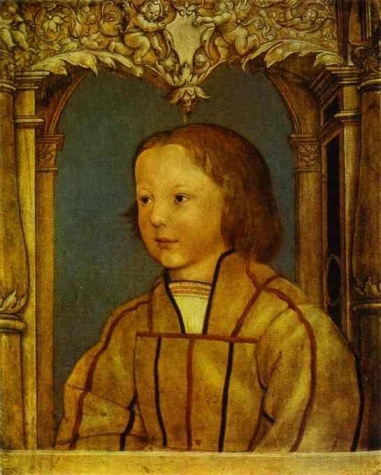
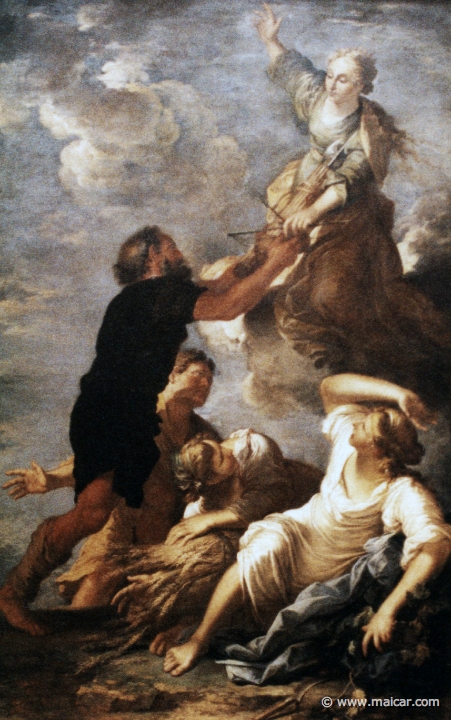
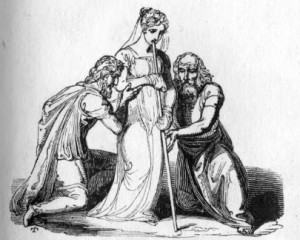
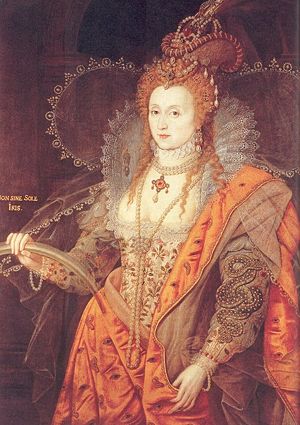

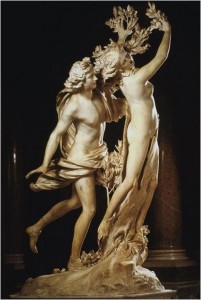
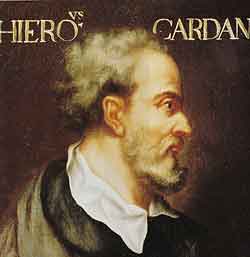
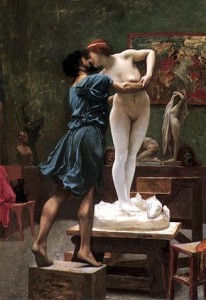
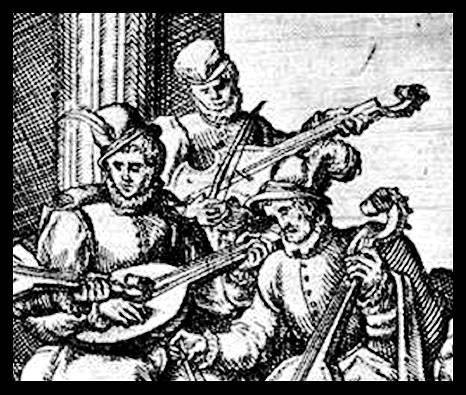
Recent Comments